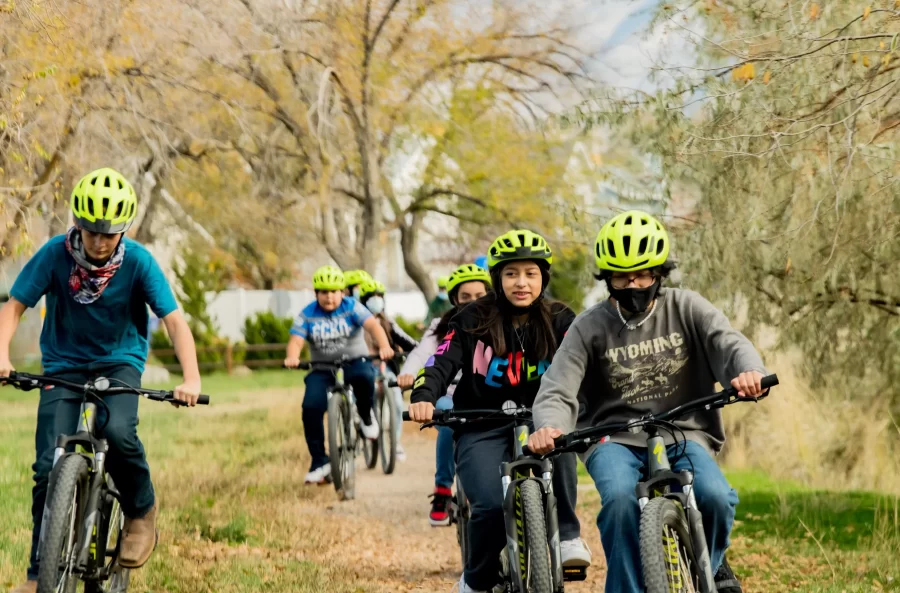Bike Riding Boosts Middle School Mental Health, Study Finds
If you’ve lived through middle school, you know it can be rough. A bright spot of news reported at NPR offers hope for improving young teens’ well-being. Riding bikes may help improve the mental health of middle schoolers, new research has shown. A new study examined the effects of 6-8 week cycling class taught in physical education classes across the country.
Researchers set out to explore whether taking part in a cycling education program could measurably impact well-being in adolescents. “We saw that there were mental health benefits across the entire population,” says Sean Wilson, the study’s senior author and researcher at Loma Linda University School of Medicine. “The main thing would be more of a positive outlook on life,” he adds.
The study involved over 1,200 middle school students, ages 11 to 14, using a program called Ride for Focus from the nonprofit Outride. The students took part in a cycling class for 3+ days a week for at least 6 weeks. While teaching safety and maneuvering skills, the course allowed kids to have fun while raising their heart rate. Standardized screening questionnaires before and after the program measured their well-being.
“We know from the huge body of research that physical activities like cycling can benefit the body. But there’s also a huge amount of growing research showing how it benefits the mind and social relationships as well,” says Esther Walker, the senior research program manager for Outride. More than that, bike riding with peers is ideal for young teens because of the social benefit it offers as well.
Middle school – when kids are more independent but not yet driving – is an excellent time to encourage kids to embrace the benefits of bike riding, Walker adds, because “they’re starting to experience all sorts of social pressures, anxiety, stress from school, stress from home. So it’s a really important time to provide additional outlets to explore not only physical activity, but also the freedom and relief that can come with going out for a bike ride during the day.”
Other experts agree. Broadly speaking, exercise is “the most evidence-based, cheapest form of prevention and intervention that human beings can do for their mental health,” says Dr. Allan Reiss, a professor of psychiatry and pediatrics at Stanford University School of Medicine.
Cycling is superior to other forms of exercise offering brain benefits, because “it engages all of these other parts of brain function, such as sensory perception,” Reiss says. “You are looking at your hearing, you’re balancing, you’re navigating and turning. Oftentimes, you’re doing it with someone else, so there’s the positive effect of company or group activity.”
Wilson noted that while biking’s benefits were substantial, it is important not to neglect other healthy habits. The study found that tweens and young teens who exceeded two hours a day of screen time, or who got less than the recommended 8.5 hours of sleep, saw less improvement in their well-being.
Read the full article here.
Learn more about the mind-boosting benefits of exercise and the mind-muscle connection here.
Godoy, Maria. “Bike riding in middle school may boost mental health, study finds.” NPR.org, 18 Oct 2023, https://www.npr.org/sections/health-shots/2023/10/18/1206583788/bike-riding-in-middle-school-may-boost-mental-health-study-finds.
Photo by Eric Arce/Outride



